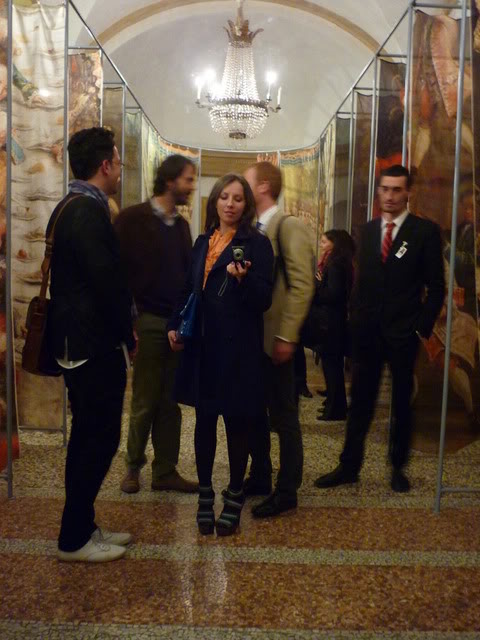
I’ve been doing a lot of writing lately, and I do mean a lot. With a looming thesis deadline, I’ve been up to my ears in Rousseau, Montesquieu, and other classically mad eighteenth-century Frenchies, but in an effort to maintain my sanity, I’ve been sneakily writing essays, poems, stories, radio scripts, and all manner of other procrastinatory things on the side. Sneaky, sneaky.
Sometimes thinking of things to write about is disgustingly easy – ideas flying over both shoulders like mnemonic devils. Other times, I can sit and stare at blank paper for hours. But lately I keep remembering all sorts of “writing exercises” we used to do in the creative writing courses I took as an undergrad (yes, they were as poncy as they sound), my personal favourite being the word association.
The recipe is painless: take one word, write, and enjoy.
Onions
Papery skin peels like silk under her
fingers. Their pearlescent sheen taunts with
thoughts of another woman’s skin. She cries
and she chops and she chops and she cries,
for the tears will not come without this prompt.
He buzzes downstairs and without missing
a beat, she wipes her hands, lets him in,
returns to her tears, and her mother’s recipe
for French Onion Soup.
I can never remember exactly what it is about onions that make people cry when cutting them. I’m sure I’ve looked it up a few times, heard someone explain the reason before, but it’s one of those facts that just never seems to stick. When I was a child I detested onions. Though to be equitable I refused to eat most things (for fun), then at ten, I began refusing to eat pretty much everything (on principle) when I opted for the life of a vegetarian.
While I’ve become quite fond of many things that I refused to let pass my lips as a child (this isn’t as impressive as it sounds), my adult relationship with onions hasn’t really evolved much since childhood. There is really only one respect where a deep-seated, covert love affair exists with these papery tear machines and that is the miracle which is French Onion Soup.
In some respects, onions, like garlic, salt, and other “condiment” cursed food stuffs have become standard issue rations; items to seemingly be added to every twenty-first century recipe. I don’t particularly care for onions in stuff – in sauces or omelettes or salads, but I do appreciate them when their uniqueness and individuality can shine, hence French Onion soup or onion purée (don’t ask), a friend even made onion ice cream once, not the most enjoyable thing I’ve ever eaten, but she was at least on the right culinary track.
Onions’ infamous layers are another reason I love the pungent little bulbs. One of the most over-used metaphors is that one about onions, perpetuating the mistaken belief that humans are full of hidden layers. What no one ever seems to mention is that, excepting the skin, the outer layers of an onion are exactly the same as its heart.
There’s a useful lesson in human psychology here I’m sure. I just can't quite make it what it is. You know, through the tears and all.




